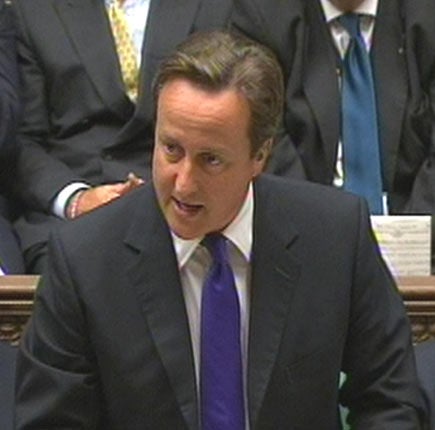Cameron orders probe into claims UK sent dissident back to Gaddafi

Your support helps us to tell the story
From reproductive rights to climate change to Big Tech, The Independent is on the ground when the story is developing. Whether it's investigating the financials of Elon Musk's pro-Trump PAC or producing our latest documentary, 'The A Word', which shines a light on the American women fighting for reproductive rights, we know how important it is to parse out the facts from the messaging.
At such a critical moment in US history, we need reporters on the ground. Your donation allows us to keep sending journalists to speak to both sides of the story.
The Independent is trusted by Americans across the entire political spectrum. And unlike many other quality news outlets, we choose not to lock Americans out of our reporting and analysis with paywalls. We believe quality journalism should be available to everyone, paid for by those who can afford it.
Your support makes all the difference.David Cameron will seek to "remove any stain" on Britain's reputation following accusations that security services helped return a Libyan dissident to Muammar Gaddafi's regime.
The Prime Minister warned yesterday against a "rush to judgement" over the conduct of the security services, as he announced measures to deal with the allegations.
"My concern throughout has been not only to remove any stain on Britain's reputation but also to deal with these accusations of malpractice so as to enable our security services to get on with the vital work that they do," he told MPs.
An inquiry already examining alleged UK complicity in the torture and rendition of terror suspects sent to Guantanamo Bay is to consider the new claims as a matter of urgency. It is expected to begin investigating the allegations – found in paperwork left in an abandoned Libyan government office – within weeks.
Mr Cameron promised that fears the UK and Libyan security services became "too close" would be fully examined, but he repeatedly praised MI5 and MI6.
Documents found in Tripoli appear to suggest the UK traded information with Colonel Gaddafi's government in return for intelligence extracted from terror suspects under interrogation in Libyan prisons.
The papers imply Britain was involved in the rendition of Abdelhakim Belhaj, who was at the time a member of the Libyan Islamic Fighting Group, which was affiliated to al-Qa'ida. Now a commander in the rebel forces which overthrew Gaddafi with British support, he says he was held in isolation, and regularly tortured. He has demanded an apology from the CIA and MI6 for their alleged role in his rendition.
Jack Straw, Foreign Secretary at the time, said the last Government strongly opposed the use of torture and denied turning a blind eye to it.
A parliamentary inquiry could also be launched into the claims. Sir Malcolm Rifkind, chairman of the Intelligence and Security Committee, said he was seeking "clarification" from MI5 and MI6 about "the nature and extent of intelligence-sharing with the Libyan security services and the rendition of Libyan nationals".
Join our commenting forum
Join thought-provoking conversations, follow other Independent readers and see their replies
Comments